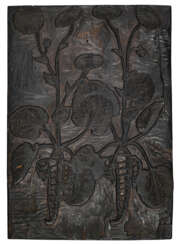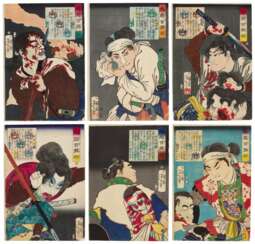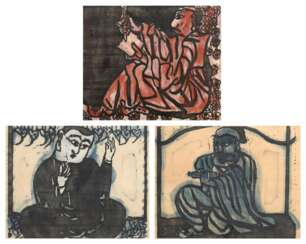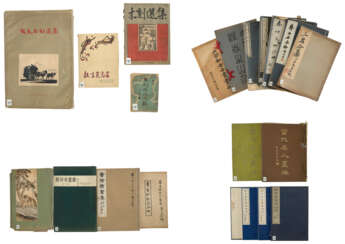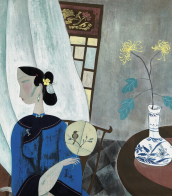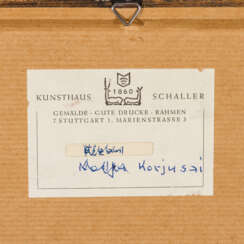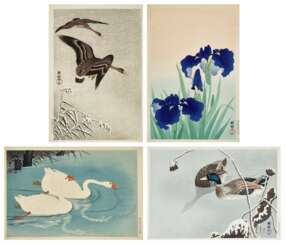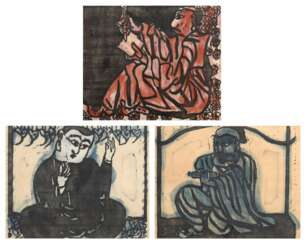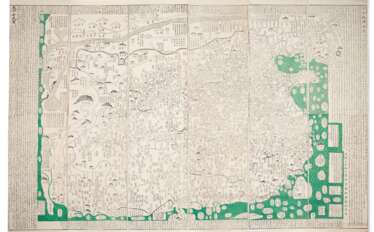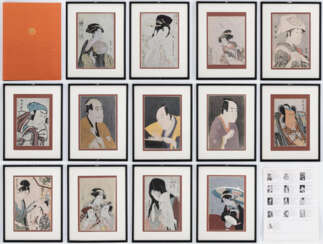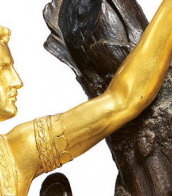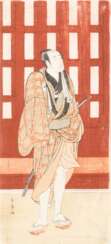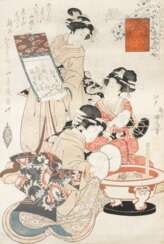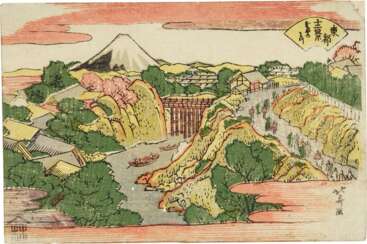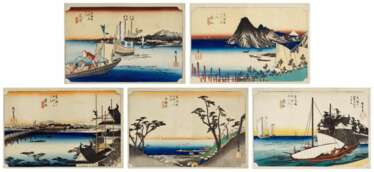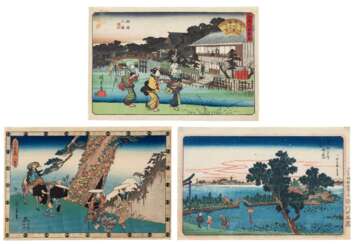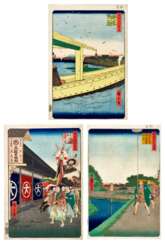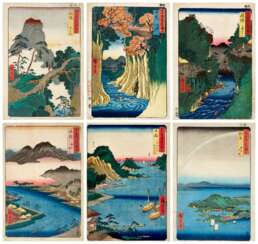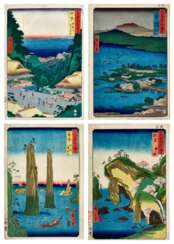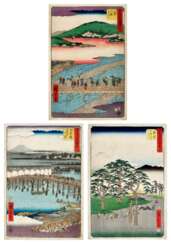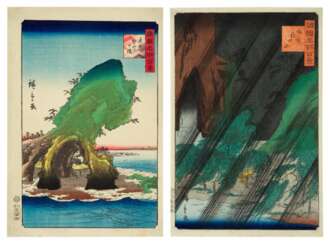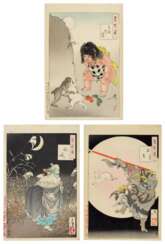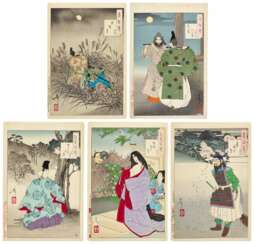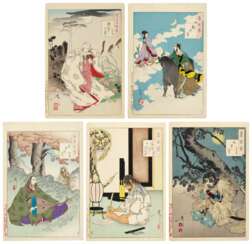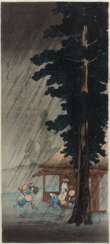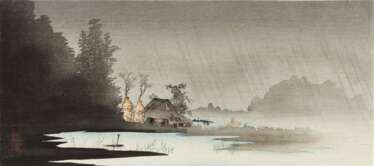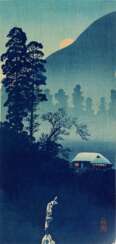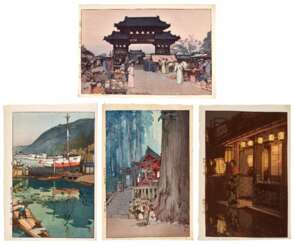woodblock
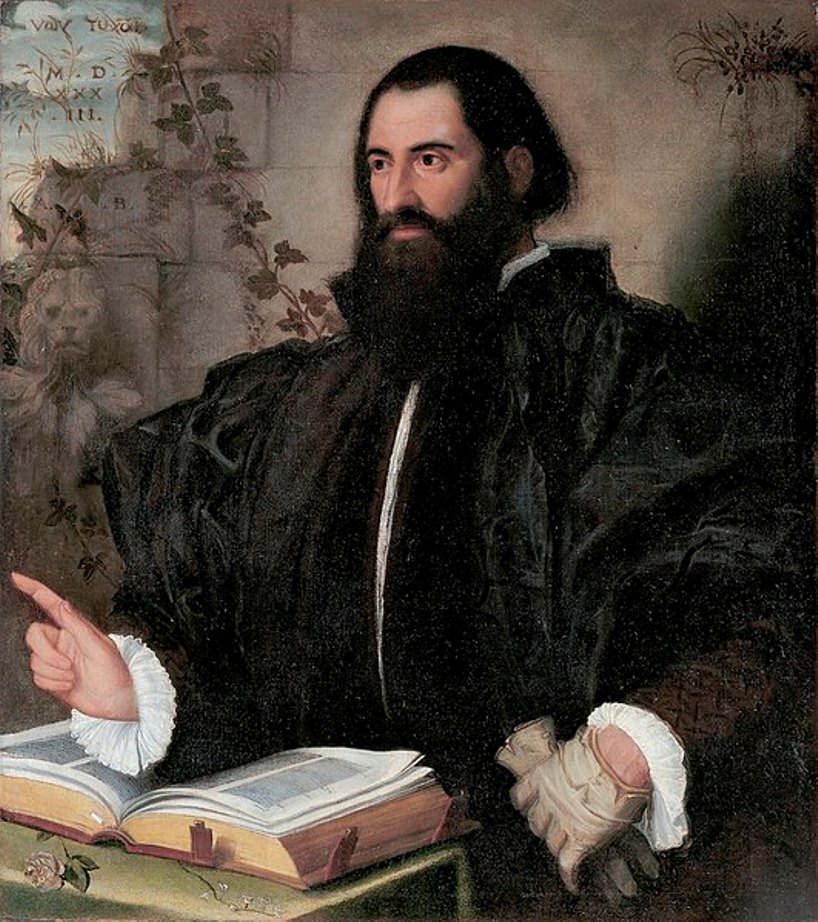
Pietro Andrea Gregorio Mattioli was a 16th-century Italian physician, botanist and pharmacist.
Mattioli studied medicine in Padua and obtained a medical practice first in his hometown. Later, in the 1555-1560s, he served as personal physician to the imperial court of Ferdinand II, Archduke of Austria, and Emperor Maximilian II. This high position allowed him to test the effects of poisonous plants on prisoners for scientific purposes.
Mattioli published several scientific works in which he included many of his own observations on the flora of the Alps, including previously unexplored plants. These works, based on the study of books by predecessor scientists, gave impetus to the development of botany throughout Italy at the time. Mattioli kept up a lively correspondence with other researchers, describing specimens of rare plants received from them. The genus of flowering plants Matthiola is named after Mattioli.


Pietro Andrea Gregorio Mattioli was a 16th-century Italian physician, botanist and pharmacist.
Mattioli studied medicine in Padua and obtained a medical practice first in his hometown. Later, in the 1555-1560s, he served as personal physician to the imperial court of Ferdinand II, Archduke of Austria, and Emperor Maximilian II. This high position allowed him to test the effects of poisonous plants on prisoners for scientific purposes.
Mattioli published several scientific works in which he included many of his own observations on the flora of the Alps, including previously unexplored plants. These works, based on the study of books by predecessor scientists, gave impetus to the development of botany throughout Italy at the time. Mattioli kept up a lively correspondence with other researchers, describing specimens of rare plants received from them. The genus of flowering plants Matthiola is named after Mattioli.


Pietro Andrea Gregorio Mattioli was a 16th-century Italian physician, botanist and pharmacist.
Mattioli studied medicine in Padua and obtained a medical practice first in his hometown. Later, in the 1555-1560s, he served as personal physician to the imperial court of Ferdinand II, Archduke of Austria, and Emperor Maximilian II. This high position allowed him to test the effects of poisonous plants on prisoners for scientific purposes.
Mattioli published several scientific works in which he included many of his own observations on the flora of the Alps, including previously unexplored plants. These works, based on the study of books by predecessor scientists, gave impetus to the development of botany throughout Italy at the time. Mattioli kept up a lively correspondence with other researchers, describing specimens of rare plants received from them. The genus of flowering plants Matthiola is named after Mattioli.

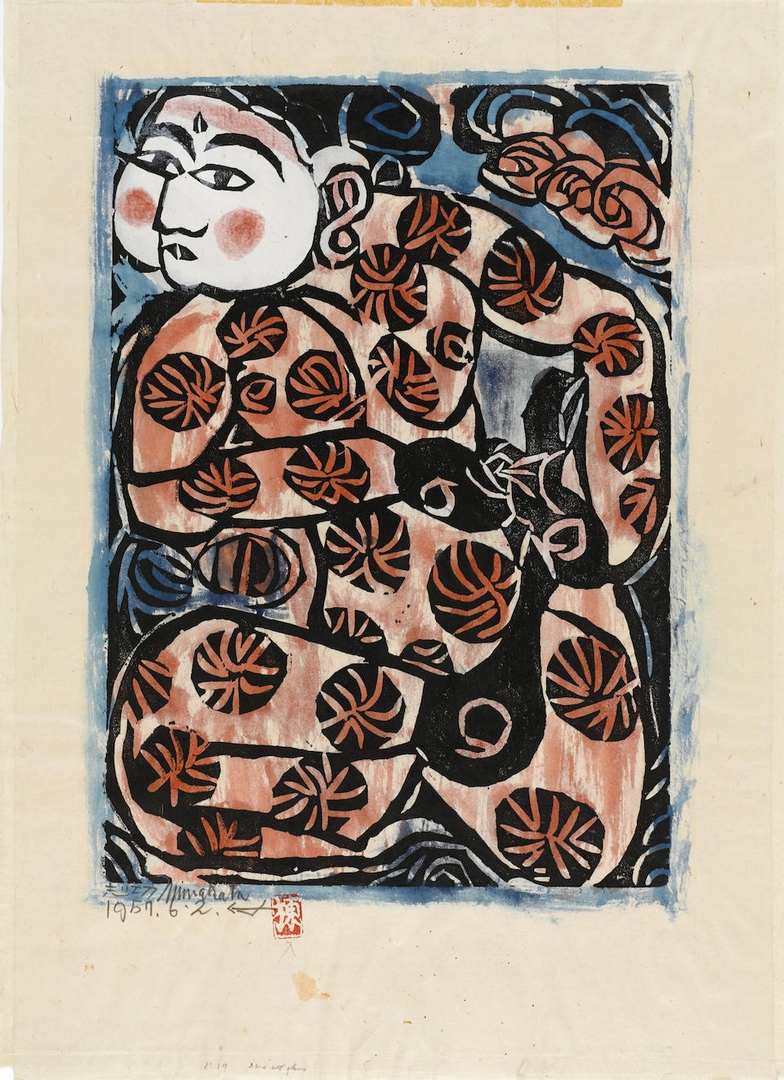
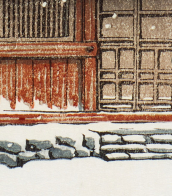



William Shakespeare was a British poet and playwright and writer.
William's father, John Shakespeare, was a merchant and official in Stratford. There are reports that he was a sailor for a time before joining a theater company in London. Beginning in the 1590s, Shakespeare began writing plays, and in 1593 he published a poem, Venus and Adonis, which became popular. He dedicated it to the Duke of Southampton, who was a philanthropist and patron of talent, and soon his business was booming.
From 1592 to 1600 Shakespeare wrote his dramas and romantic comedies "Richard III", "The Taming of the Shrew", "Romeo and Juliet", "A Midsummer Night's Dream" and "The Merchant of Venice", as well as the comedies "Much Ado About Nothing", "Twelfth Night" and the tragedy "Julius Caesar". The playwright's business was so successful that he even bought a large house in Stratford. In 1599, Shakespeare became one of the owners, playwright and actor of the new theater "Globe". In 1603 King James took Shakespeare's troupe under his direct patronage. In the mature period, the great playwright turned to tragedies, there were "Hamlet", "Othello", "King Lear", "Macbeth" and others.
Although in the 19th century researchers had some doubts about the authorship of many of these works, William Shakespeare is considered the greatest English playwright, one of the best playwrights in the world. His plays have been translated into all major languages and to this day form the basis of the world theatrical repertoire, most of them have been screened many times. According to the Guinness Book of Records, Shakespeare remains the world's best-selling playwright, and his plays and poems have sold more than 4 billion copies in the nearly 400 years since his death.


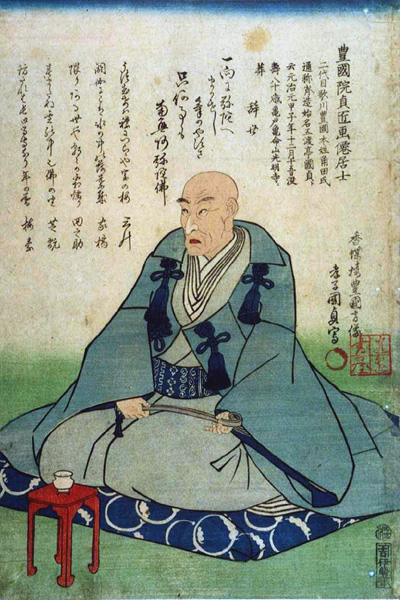
Utagawa Kunisada (Jap. 歌川 国貞, also known as Utagawa Toyokuni III (Jap. 三代歌川豊国)) is the largest Japanese artist and master of color graphics (woodcuts) of the Edo period.

_portrait.png)
Katsushika Hokusai (Jap. 葛飾 北斎) was a well-known Japanese ukiyo-e artist, illustrator, etcher of the Edo period. He worked under many pseudonyms. He is one of the most famous Japanese engravers in the West, master of the concluding period of Japanese woodblock prints.




![Original woodblock for Aquilina Aquilegia vulgaris [Columbine], from Mattioli's Herbal](/assets/image/picture_3134701/107c4/lnv8185xrdrbubgr19jqdblnlhre59zep63yalv4j3kvcxzvw4sxwbmfqdwtkbkk1695820581jpg__fix_374_244.jpeg)
![Original woodblock for Aquilina Aquilegia vulgaris [Columbine], from Mattioli's Herbal](https://veryimportantlot.com/assets/image/picture_3134701/107c4/lnv8185xrdrbubgr19jqdblnlhre59zep63yalv4j3kvcxzvw4sxwbmfqdwtkbkk1695820581jpg__fix_374_244.jpeg)
![Original woodblock for Cardus vulgaris [Carline Thistle], from Mattioli's Herbal](/assets/image/picture_3695516/6c741/cqlj4tbszqrc9o4s3dm7r33zwlyrppuqo6jrdu2q-kmvpkdyo4ojenv0-kraijme1704446647jpg__fix_374_244.jpeg)
![Original woodblock for Cardus vulgaris [Carline Thistle], from Mattioli's Herbal](https://veryimportantlot.com/assets/image/picture_3695516/6c741/cqlj4tbszqrc9o4s3dm7r33zwlyrppuqo6jrdu2q-kmvpkdyo4ojenv0-kraijme1704446647jpg__fix_374_244.jpeg)
